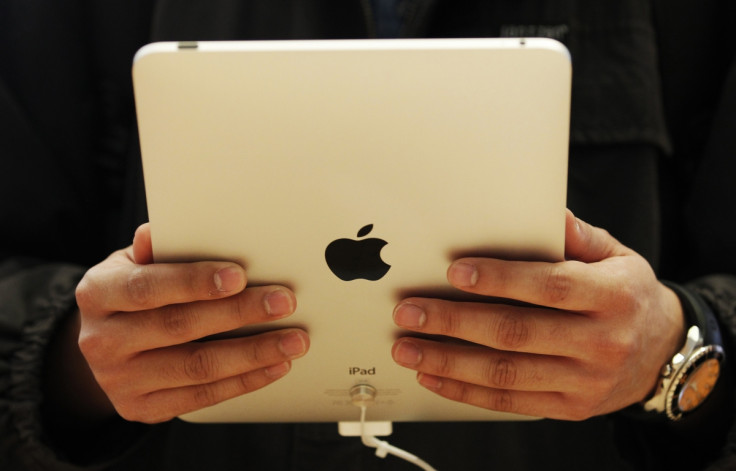Attention UK Retail Firms: Sales from Mobile Devices Just Rocketed 138%

If you're a retailer then you should care about "m-retail" – unlikeable piece of jargon giblet though it is – because it is a tectonic shift in your customers' habits.
It is affecting everybody, from the elderly to the young and the rich to the poor, and it will affect you too, badly, if you ignore it.
The e-retail index, compiled by industry group IMRG and consultancy firm Capgemini, reveals just how quickly the mobile retail market is growing. The numbers from mobile retail sales aren't just compelling, they're jaw-dropping.
"Tablets I think may well become the gadget of choice for people buying on the internet. It's so easy to use," said Chris Webster, head of retail and technology at consultancy firm Capgemini, at a retail sector roundtable event to reveal the IMRG/Capgemini e-retail index results for 2013.
Sales via mobile devices, including smartphones and tablets, leapt 138% in 2013 on the year before. In 2013, 27% of all online sales were closed on a mobile device. They equated to £3bn in value – twice as much as the year before.
In that year, sales by smartphone increased 186%. Sales from tablet devices were up 131%. Of all mobile sales, 82% were from tablets.
This is where online retail growth is. From the second quarter onward, it was mobile device sales that drove the lion's share of the 16% rise in e-retail sales across 2013 to a total – and record – value of £91bn. Traditional channels, such as the desktop website, showed little movement.
The conversion rate for tablets – shoppers browsing a website who then go on to buy something – also jumped over Christmas from 2% to 4%.
Perhaps this is down to increasingly confident consumers in the unfolding UK recovery; or a better user experience on the websites; or greater price transparency from the beginning of a transaction so fewer potential customers drop off at the end when exorbitant delivery charges are suddenly added on.
Whatever the reason it all points to one thing – people are buying more and more on their mobile devices.
'Democritisation of tablets'
Tablets have opened up the realm of internet shopping to those who have so far left its pixeled pastures ungrazed.
"There are a number of people who have grown up not using PCs and laptops," said Capgemini's Webster.
"My mother as an example, who happens to be 80, now has an iPad and shops online. Never had a PC, never had a laptop in her life. But now is able to shop online.
"I think it has opened up a tranche of the population who would not have shopped online."
Plus the cost of a tablet device has fallen dramatically. Consumers can now pick up tablets for as little as £100 made by retailers such as Tesco, whereas before the market was dominated by expensive devices costing hundreds of pounds made by the likes of Apple and Samsung.
It's what Sean McKee, head of e-commerce and customer services at Schuh, called the "democratisation of tablets".
"There were some very cheap tablets on the market this year that will have really opened up tablet shopping to people who might not have always had it thus far," he said at the same roundtable event.
He added: "There is a technical enabler that's allowing people to shop much more conveniently, sitting back on the sofa at nine o'clock at night, which they might not have done previously."
There's a big plus for consumers in using tablets or phones to do their shopping, or at least browse for deals before heading into stores to try and buy. And vice versa, of course – heading to stores then going home to find the best deals online.
That big positive is convenience and it's exemplified by what Craig Wheeler, operations director at beauty retailer FeelUnique.com, noticed in how consumers were shopping at different times of the day.
In the morning – when we're all commuting to work – people shopped with their phones to kill dead time. During the day, when most of us are chained to a desk at work, people were using their PCs. And in the evening, when we're settled on the sofa to watch television, we were switching to our tablets.
There has also been a shift at weekends in when people are shopping online.
"We've certainly seen that big switch to Sundays," said Wheeler at the roundtable.
"It seems that, especially in the beauty industry, the shopping has become more social. So a Sunday evening sat on the sofa, browsing through a lot of blogs and magazines, a lot of content out there. It's become a social activity.
"We're seeing it not just Sundays, but evenings. It's going on much later. So I'll watch all my television programmes while I sit on the tablet for an hour or so."

Investment imminent
With that all in mind it's imperative that retailers looking to the future make a move in mobile: designing the website to function beautifully on mobile devices; creating an app to make shopping easier; or whatever else to innovate and give consumers a reason to shop with them over their rivals.
But are retailers doing this?
"We did a survey with our retailers and we discovered that only 51% of all the retailers actually had a tablet optimised website," said Tina Spooner, chief information officer at IMRG.
"So I think there's probably going to be some investment in tablet optimisation this year."
There's also more you can do than just the transaction. Consumers carry their mobile devices at all times. Your stores can become an Aladdin's cave of technological innovation.
"We're absolutely mobile first," said Mark Lewis, online director at department store John Lewis, at the roundtable.
"The customers have got those devices on them in the store. So the functionality and the interactivity and what you can do in a store on that device become very important for us as well.
"If you look at our mobile apps for example, the ability to scan an item in store to get ratings and reviews, get richer product information, have it added to your wish-list, then look at it again when you get home – all of that stuff is very, very important as well as just the transaction."
It's better to innovate and lead the pack now than to lose customers because you're playing catch up years later. M-retail may not dominate the overall retail sector at the moment, but it will keep on growing until perhaps one day it does.
© Copyright IBTimes 2025. All rights reserved.






















